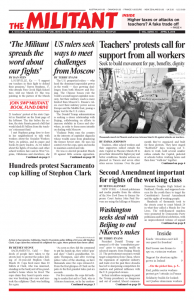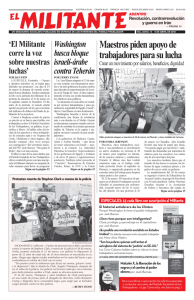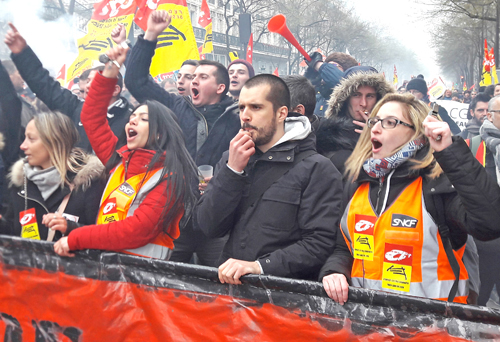PARIS — Hundreds of thousands of rail and other government workers took to the streets in 180 cities across France March 22. Close to 25,000 rail workers — almost one-quarter of the workforce at the state-run SNCF (French National Railway Corporation) — took part in the demonstration here. More than one-third of rail workers nationwide struck for the day, paralyzing much of the French rail network. Financial daily Les Echos said the strike was much larger than expected.
The SNCF workers were protesting a series of government attacks, including the threatened closing of 5,600 miles of local rail lines and steps towards privatization of the railroad.
The government of President Emmanuel Macron has been campaigning to weaken the unions in both private and public sectors in France and protections they have won over decades of class combat. Many of these attacks, including those on the rail workers, are conducted in the name of opening up jobs for young people. Unemployment among youth is over 20 percent, and those who do have jobs are hired under temporary contracts, with lower pay, no benefits and no union protection.
In particular, the Macron government demands an end to strong legal protections many unionists have won against layoffs and firings. They are demanding that new hires in the SNCF be stripped of these protections, creating a two-tier system where younger workers would have weaker job rights and benefits.
The bosses say they give rail workers unjustified privileges and lifetime job protection. These arguments have some effect on unemployed workers. Rail workers seek to explain the government’s attacks on these gains are part of an attack on all workers.
In face of the protests, the government has backed off from closing down rail lines — at least for now.
The public sector workers — including the national education and public health systems, the metro and bus system of Paris, municipal sanitation workers and others — were responding to government moves to cut spending for public services and reduce the workforce by 120,000. And they’re concerned the attacks on rail workers will eventually lead to an attack on similar protections they still have.
Rail unions announced a three-month series of rolling strikes starting in April.


